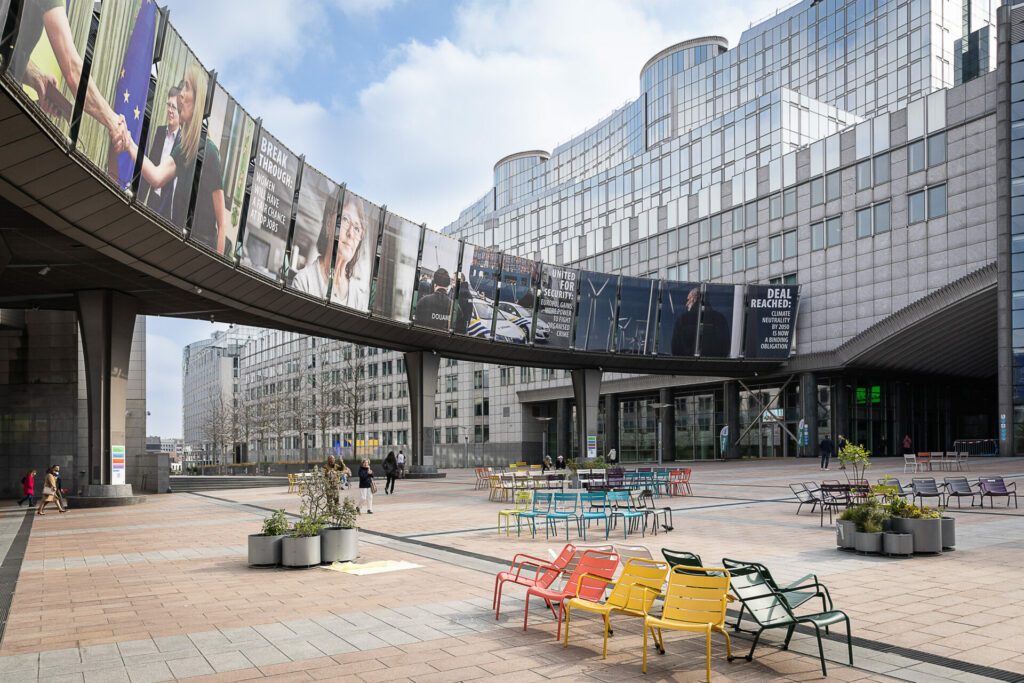It's a week since voting started to elect the next European Parliament and whilst the ballots have now been counted and seats allocated – including for Belgium's 22 MEPs – EU politicians and parties are now figuring out how to approach the next term.
Projections from the European Parliament show that the right-wing European People's Party (EPP) will hold as the largest political group, and we are likely to see a similar coalition to previous parliaments, involving the EPP and fellow centrist groups Renew Europe and the Socialists and Democrats (S&D).
Meanwhile, the Parliament's two far-right and Eurosceptic political groups Identity & Democracy (ID) and the European Conservative & Reformists (ECR) have grown in numbers, surpassing the Greens/EFA group in size; The Left remains the smallest political group.
While the widely predicted far-right surge in Europe was less significant than expected, there were some Member States which saw huge gains from individuals. Notably, French President Emmanuel Macron called for a snap election after historic gains for the far-right National Rally (RN), as well as the far-right Alternative for Germany (AfD) who still managed to secure a huge vote share despite being expelled from ID over a recent succession of scandals.
Speaking to The Brussels Times, Sophia Russack, a researcher with EU affairs think tank the Centre for European Policy Studies (CEPS), said that as EPP, Renew and S&D retain their majority, albeit "a little bit less comfortable than before," there is not likely to be much change in the next European Parliament term regarding who is leading decision making.
The left loses its hold
Most influential in the direction of the next European Parliament will be the diminished stature of left-leaning groups like The Left and the Greens/EFA, rather than the rise of the far-right, Russack argues.
"What concerns me is not so much the right, they still don’t have decision-making or blocking powers. I'm more concerned that the left doesn’t have a majority anymore. The Social Democrats and the parties [further] left had a very slim majority in the last term and were responsible for more progressive agenda points, for instance on the Green Deal. Now this majority is not there so there might be a shift overall towards a more conservative agenda."
The Greens/EFA group were hit especially hard in this weekend's elections, with projections showing that the number of Green MEPs in the next legislature will shrink from 71 to 53.
Russack highlighted that this is still the second-best performance that the Greens/EFA group has ever had (the best being in 2019). However, she noted that smaller numbers in the next term will impact the green agenda, as well as change the discourse around climate issues.
"It's not only electoral support for the Greens but also the way the discourse is framed, the way that Ursula Von der Leyen has for many months been allowing a bit of a rolling back on her Green Deal. Everybody – including the Greens – now talks about the Green Deal in combination with competitiveness and industry."
"It is a tightrope between staying firm on the principles of the Green Deal while improving the EU’s competitiveness. That will be definitely one of the key focuses for the next term."
Electing a Commission President
Now that MEPs have all but all been elected (apart from a few seats left to fill in Ireland), the attention moves to electing a new President of the European Commission.
Current Commission President and lead candidate for the EPP is Ursula von der Leyen, a front-runner for most of the campaign and tipped for a second term. But questions have been raised about whether von der Leyen will have enough support to be elected by a majority of MEPs when it is put to a vote in the coming months.
Russack believes that given the strong outcome for EPP in the Parliament elections, it is highly likely von der Leyen will return for a second term at the helm: "I was quite sceptical in the last weeks but now it seem like, who else? The EPP came out a bit stronger, the centre holds and seems quite solid and quite committed."
Moreover, the crumbling of support for Macron makes him less likely to speak up in the European Council and promote his preferred candidate Mario Draghi.
Next steps
The 720 newly elected MEPs will meet for the first constitutive plenary session of the new European Parliament in Strasbourg on 16 July.
Here, MEPs will elect the President of the Parliament, as well as 14 vice-presidents and five Quaestors (who oversee administrative and financial matters), and they will also start forming committees.
After the Parliament is constituted, the European Council puts forward a candidate for European Commission President, and MEPs can vote by secret ballot on whether they want to elect them.
This could happen during the first session after the summer recess, between 16 and 19 September - although in 2019 a plenary session was organised as early as July to elect the next head of the Commission.

